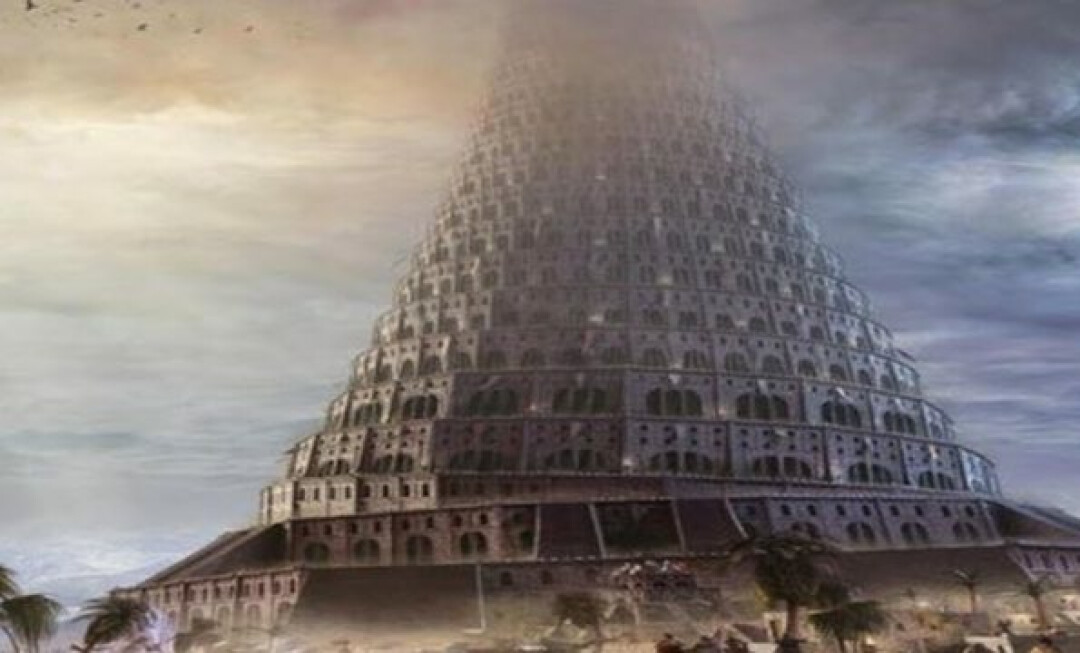
Genesis 11:1-9
About 100 years or so after the big flood, humanity had gotten arrogant and cocky. While they did not forget the flood, they did seem to forget that it was God’s judgment on humanity. They had discovered different skills and trades over time and they had learned how to organize and do more together than any one person could do alone. They had also learned to make bricks and decided to build something impressive. Even though God had commanded them to multiply and fill the earth, they chose to band together, stay in one place, and build themselves a city. And why not push themselves a bit more and build something that reaches right into heaven? That way if there was ever another flood, they would be able to escape it. And not just physically, but both emotionally and spiritually as well. They wanted to make a statement, in the process, make a name for themselves. Humanity had gotten the idea that they were really important, and that people’s opinions of God didn’t matter. Genesis 11 is about pride and arrogance that is so extreme that it consumes and hurts everything, and everyone involved. It’s about hubris which is defined as excessive pride or self-confidence, which in this case, is the thought that we’re equal to or greater than God.
The message of Genesis 11 is that God responds to out-of-control pride by stepping in to save humanity from itself. The word babel originally meant “Gateway to God.” Ironic since this place would become known as the ultimate in confusion.
- Self-sufficiency leads to defying God. When God first created humans, He blessed them and said, “be fruitful & multiply, and fill the earth” (1:28). So, after the flood and the destruction of the world, the only survivors Noah, his wife and their three sons and their wives slowly began to repopulate the earth. As their families increased, they migrated from the east and settled near Shinar. We can imagine them like nomads, advancing slowly and moving their tents by stages until they decided to settle in one place. Nimrod, the great grandson of Noah, a mighty hunter becomes their leader. It was here that they decided to build a city not only to make a name for themselves, but so that they would not be scattered abroad. Their pride and self-sufficiency led them to ignore God’s command to fill the earth. Why? because, they thought that they knew how to protect themselves in numbers. They didn’t want to move out, they thought they knew better than God and so they defied His command.
- Self-pride leads to challenging God. The Jewish historian, Josephus, who lived around the time of Jesus Christ, wrote that King Nimrod (through the tower of Babel) “…gradually changed the government into tyranny, seeing no other way of turning man from the fear of God and bringing them into constant dependence on its (the government’s) power.” You do not make people dependent all at once. With time, they were developing new skills – like making bricks and engineering impressive structures. They had a growing sense of accomplishment. They were also learning to depend on each other, on their leader. With each success, they pushed themselves a little harder. It was also making them arrogant. Their knowledge & success made them even more ambitious. It happens over time. Nimrod was gradually able to distract the people by appealing to their sense of pride and self-sufficiency. The Tower was marketed as a building that could reach the heavens. Their need to make a name for themselves betrayed their fear of being forgotten and dumped in the junk yard of history. They were united in their disobedience to God’s command and in their sense of self-importance. They believed that they were very clever in their ability to build something that could help them escape from God’s judgment.
But God, in keeping His promise to Noah to never destroy humanity again, rescues them from themselves, from their pride, and from their self-sufficiency by confusing their language. Up until that point they were all united in language while their unity led to rebellion against God. God wants our unity to come through Him; not apart from Him. It is God’s intention for human unity, but only in obedience to God’s will. We are united in the righteousness of Christ.
What is distracting you? What idea grabs your attention? What fears cause you to worry and shape how you live your daily life? Are we getting caught up in building our own tower of Babel where we not only are disobeying God’s commands, but where we are trying to make a name for ourselves? Are we trying to build something that will replace God physically, emotionally, and spiritually? Who is it that we rely on and trust? God or ourselves? Like the confusion at the tower of Babel, pray that God would rescue us from ourselves.
